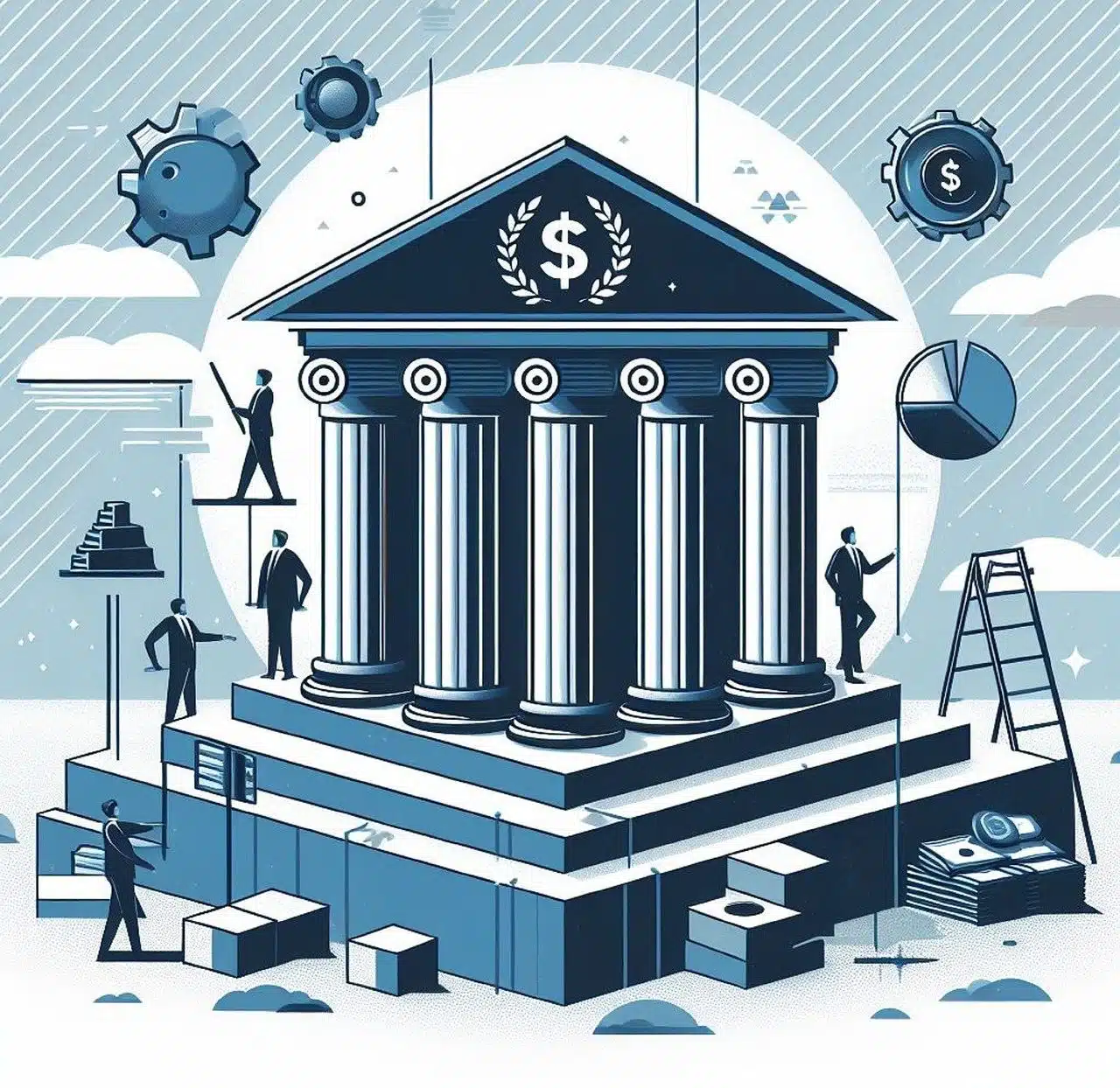
Capitalism is based on a market economy.
Capitalism is an economic model that emerged in Europe during the 16th century and that managed to prevail after the fall of feudalism . Among its main characteristics is the accumulation of capital as the axis of economic life.
Capitalism consists of a regime of economic bases in which the ownership of production resources is private. These media operate on the basis of profit , while financial decisions are made based on capital investment and with a view to competition for consumer markets and wage labor. The highest social class that falls within this model is called the capitalist bourgeoisie .
What is capitalism
The definition of capitalism, however, is not exact. Liberal democracies , for example, understand capitalism as that system where the production, marketing and values of goods and services are established and conditioned by some form of free market or free trade .
In capitalism, all those involved act and commit themselves according to the interests they have: the capitalist or businessman , who has the resources, seeks to expand his profit through the accumulation and reproduction of capital; The worker , for his part, does his work to receive material remuneration (salary); Consumers , meanwhile, seek to obtain the greatest possible satisfaction or utility when purchasing products or contracting services of various kinds.

In capitalism, the existence of oligopolies or monopolies leads to imperfect competition.
Differences with feudalism and socialism
Broadly speaking, capitalism differs from its predecessor economic system, feudalism, because capitalists buy work from workers in exchange for a salary and not under a moralistic demand that forces people to work in a slave-like manner.
Likewise, the most marked difference with socialism is the existence, in capitalism, of private property as a right that all individuals have, while in socialism there is social ownership of the elements of production. It should be noted that no socialist State maintained these ideas to the letter and that the way to impose said economic and social system was through forceful measures.
In capitalism, private property occupies a primordial place: it is not only its basic principle but also thanks to it all the other elements that make up the system are regulated. The freedom of companies, self-interest as the main motivation, the reduced interference of the state in the market, prices left to the game of supply and demand and the existence of competition are other capitalist characteristics.

Unemployment, income inequality, poverty and the overexploitation of natural resources are some of the problems linked to capitalism.
Capitalism, positive or negative for people?
If we are guided by what was stated by Ayn Rand , one of the most essential intellectuals of the last century, we can affirm that capitalism is the only economic system that could help human beings develop following the demands of their nature: rational and free . . The moral justification of capitalism would reside in the fact that in this system the human being has the right to life and property , which Rand considers fundamental to develop as free people and that if lacking, none of the other rights could be exercised.
It should be noted that capitalism has been criticized from different currents of thought that accuse it of promoting exploitation , by conceiving the task of the human being as just another commodity. The very contradiction of the system lies in the fact that it is protected by private means of production that function with a collective workforce: that is, while capitalism reproduces itself collectively, the wealth that is obtained is the private property of the capitalist. .
Talking about capitalism as the perfect economic system is also a mistake: one cannot fail to point out the major flaws it presents, such as the increase in the enrichment of a few at the expense of the impoverishment of the most vulnerable. In any case, if certain changes could be established, life in society would possibly improve considerably. It would be enough to change the conditions of the exchange of goods and services, the bases of the market , the degree of competitiveness and the measures that the State takes based on the economic market , which is no small thing.
The view of different thinkers
The analysis of capitalism varies depending on the ideology . Just as many thinkers highlighted (and highlight) its benefits, others point out its contradictions and failures. In this way, there are intellectuals who defend and promote this system, while at the other extreme there are those who point to its downfall.
Adam Smith (1723-1790), author of the famous work "The Wealth of Nations" , maintained that the growth of the economy , driven by free competition, the division of labor and the accumulation of capital, makes it possible to achieve well-being. social . In this framework, it encourages a capitalism where the so-called invisible hand of the market is in charge of correcting possible distortions.
Closer in time, Friedrich Hayek (1899-1992) and Milton Friedman (1912-2006) appear among the great theorists who promoted capitalism. Friedman , founder of the Chicago School of Economics , rejected Keynesianism and spread economic liberalism , while Hayek was a reference of the Austrian School of Economics who stood out for opposing the economic planning characteristic of socialism.
Regarding socialism , precisely, we must highlight the figure of Karl Marx (1818-1883), father of Marxism . This German philosopher considered that capitalism was the exploitation of man by man and maintained that a revolution was essential to overthrow it and establish communism .
Vladimir Lenin (1870-1924) with the Russian Revolution and Mao Zedong (1893-1976) in China are some of the revolutionary leaders who managed to establish a communist regime. The mostly negative effects of these experiences are often used as evidence of the convenience of capitalism over other economic systems.
